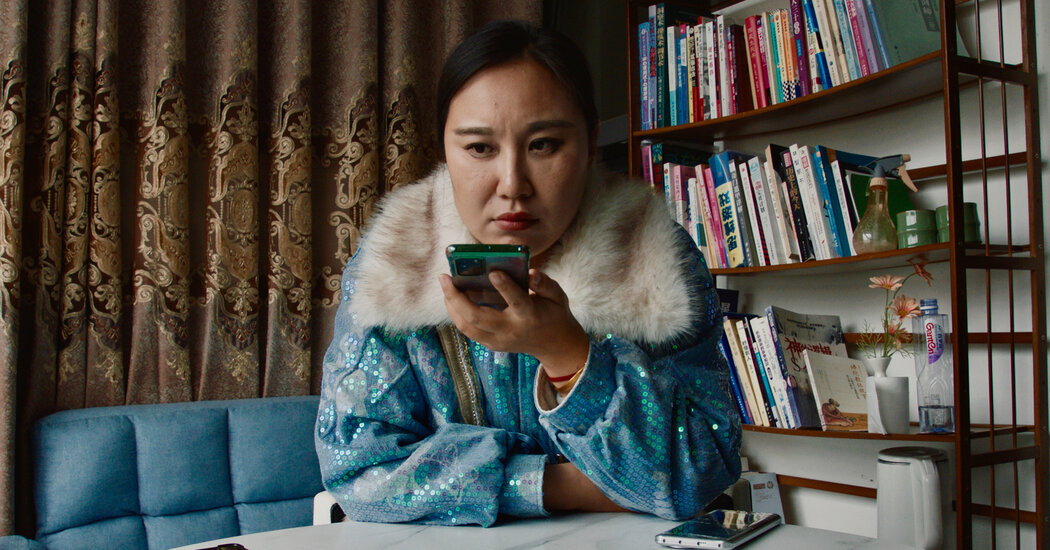The idea of “mistress dispelling” sounds like something made up for a movie: A spouse hires someone to break up their partner’s extramarital relationship. But it’s a real industry that’s emerged in China in the past decade, and it’s the subject of Elizabeth Lo’s haunting new documentary, “Mistress Dispeller” (in theaters). Lo’s previous film, “Stray,” was an observational documentary that followed three stray dogs looking for human companionship on the streets of Istanbul. “Mistress Dispeller” takes a similarly observational approach — opening text tells us that none of the sequences were restaged — but this time, it’s the humans who are wrestling with love.
The film centers on Mr. and Mrs. Li, a middle-aged couple, and Wang Zhenxi, the mistress dispeller whom Mrs. Li hires to break up her husband’s affair. Shockingly, not only did both the Lis and Wang agree to participate in the film, but so did Fei Fei, Mr. Li’s mistress, a much younger woman who lives in another city. She was attracted to Mr. Li, she says, because he was kind to others, and she wanted to feel that kindness just a little longer.
The tone of “Mistress Dispeller” is about as far from “Fatal Attraction” as you can get; think more “Past Lives,” wistful and melancholy, a story about people who are looking for connection and love in a world where that’s in short supply. Rather than leaning on caricatures or stereotypes, the film gives each person’s perspective a respectful hearing. The added element of Wang’s subterfuge is what keeps it all fresh: She has to go undercover at first, inserting herself into the Lis’ lives and gaining Mr. Li’s trust before she can help him figure out how to end his relationship gracefully, knowing that Fei Fei will be the one who will feel the most pain in the end.
In some ways, there’s really nothing surprising about “Mistress Dispeller” — the story it tells is as old as time. What’s remarkable is the mere fact that it exists. The opening text indicates that the subjects’ agreement to appear was sought both at the beginning and the end of production, as their understanding of the film and of Wang’s role in their relationships to one another evolved over time. That’s important to know from the start; otherwise, the question of who knows what, and when, would be too distracting throughout.
But even so, it’s amazing that they agreed in the first place. Lo has spoken in interviews about the arduous, yearslong process of identifying first a mistress dispeller who would take part, and then clients who would be willing. She wanted to film each perspective in a crumbling love triangle. But initially, Mr. Li and Fei Fei thought they were participating in a film about modern love in China. Only after it was finished did each subject review the cut, and Lo said she was prepared to reframe the film entirely at that point if the subjects withdrew their consent. They didn’t.
That fact illuminates something powerful about a well-made observational documentary. Most of us don’t have cameras following us around, nor do we have a compassionate filmmaker ready to edit and re-narrate our own lives back to us. But there’s something about having that mirror that lets subjects see themselves, even in unflattering lights. Lo’s construction of each person’s story grants them dignity and compassion. And their agreement at the end speaks volumes about what they saw in the film, too.
Alissa Wilkinson is a Times movie critic. She’s been writing about movies since 2005.
The post In ‘Mistress Dispeller,’ a Story as Old as Time (With a Very New Twist) appeared first on New York Times.




